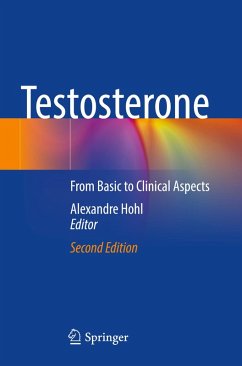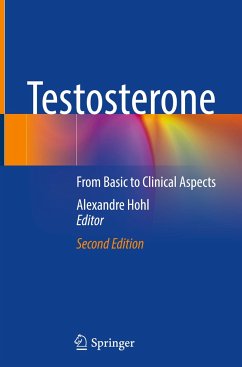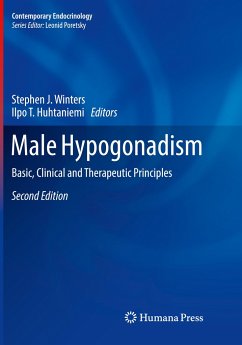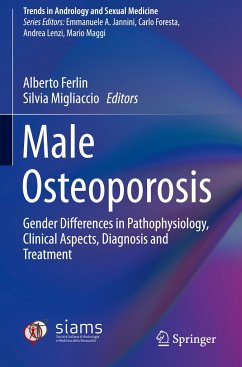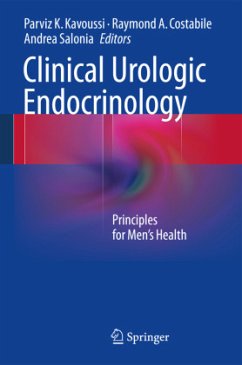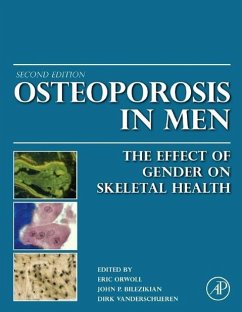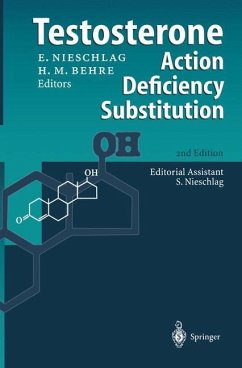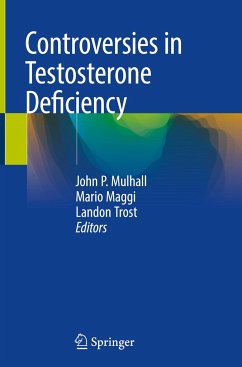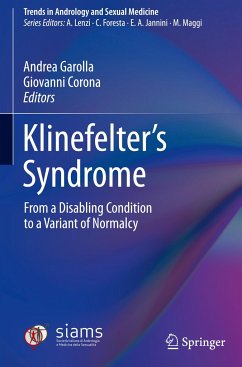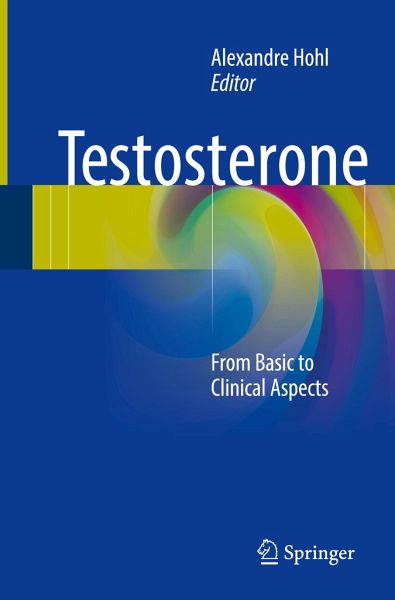
Testosterone
From Basic to Clinical Aspects
Herausgegeben: Hohl, Alexandre
Versandkostenfrei!
Versandfertig in 6-10 Tagen
68,99 €
inkl. MwSt.

PAYBACK Punkte
34 °P sammeln!
Research on testosterone is increasing in many senses; however there is still much controversy regarding its physiology and clinical use. This book addresses these topics, providing a broad overview about testosterone, from its basic features to the most recent evidence of clinical applicability. Also, specific conditions in which testosterone play a pivotal role are discussed in detail, such as hypogonadism, misuse and abuse, puberty, cardiovascular effects and testosterone therapy. Although not essential for survival, testosterone represents the essence of male biological function, being the...
Research on testosterone is increasing in many senses; however there is still much controversy regarding its physiology and clinical use. This book addresses these topics, providing a broad overview about testosterone, from its basic features to the most recent evidence of clinical applicability. Also, specific conditions in which testosterone play a pivotal role are discussed in detail, such as hypogonadism, misuse and abuse, puberty, cardiovascular effects and testosterone therapy. Although not essential for survival, testosterone represents the essence of male biological function, being the important testicular androgen in men. Low serum testosterone levels are associated with cardiovascular morbidity, metabolic syndrome, type 2 diabetes mellitus, atherosclerosis, osteoporosis, sarcopenia, and mortality. Conversely, increased serum levels of testosterone may lead to deleterious events. In general, there is increasing evidence that serum testosterone is a major biomarker status of men's health in general.
Testosterone: From Basic to Clinical Aspects is an indispensable reference for all those who seek state-of-the-art knowledge regarding this hormone, from basic issues (including pharmacology and physiology) through clinical aspects (related diseases and supplementation therapy).
Testosterone: From Basic to Clinical Aspects is an indispensable reference for all those who seek state-of-the-art knowledge regarding this hormone, from basic issues (including pharmacology and physiology) through clinical aspects (related diseases and supplementation therapy).



